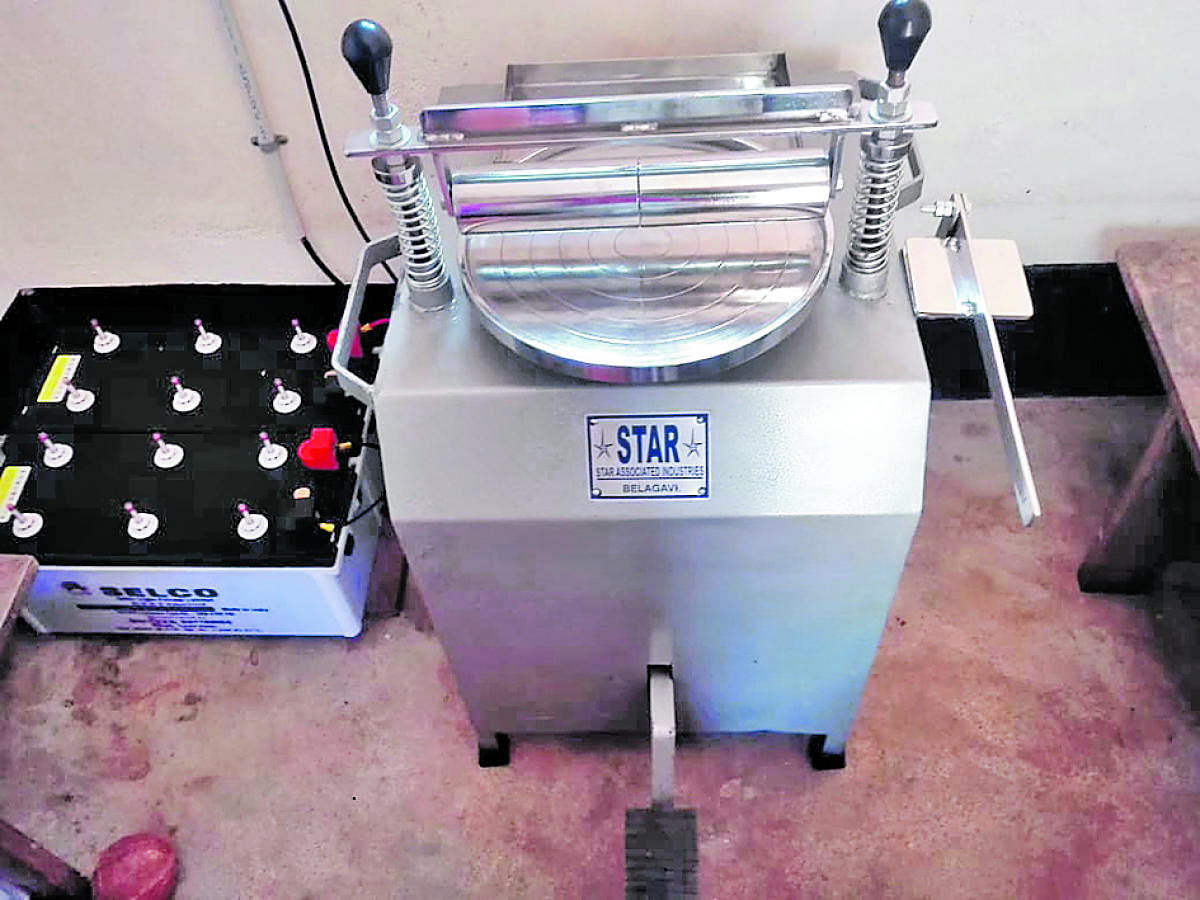
A solar-powered Rotti-making machine was installed at Government Higher Primary School at Katathila Mutta, near Salethoor.
Selco in association with Karaseva Trust of Yenepoya Medical College students installed the machine with the twin objectives of helping the government school earn income and to empower women.
The cost of the machine is Rs 64,000 and was equally shared by Selco and the Trust. Two women, who were trained in using the machine, were also parents of the children studying in the school and had begun making jowar rotti with the help of machine from January 14, Selco AGM Guruprakash Shetty said.
The project, which does not depend on conventional electricity and government funds, has chartered a new path towards sustainability. Solar high-mast light, solar inverter and solar water heater have also been installed in the school for ensuring uninterrupted power supply.
The Trust after adopting the school had approached Selco to work on a project on making the school a self-sustaining model school in the future. It was then decided to install a rotti making machine at the school. If Selco trained the two women on making the rotti, Trust sought the help of three hospitals, including Yenepoya Hospital, to market the rotti.
‘’A large number of patients from North Karnataka visit these hospitals for treatment and they wish to have jowar rotti--which is their staple food. The machine can prepare 500 rottis a day,” Shetty said.
In recent times, many micro enterprises and traditional occupations were wiped out due to over dependence on conventional power and acute shortage of human resources.
Shetty said Selco had been successful in providing alternative and sustainable sources of energy through technical interventions. The rotti making machine in the school will be officially inaugurated on January 18.
A solar-powered potter’s wheel, solar-powered blowers for blacksmiths, rope-making machines and roti-rolling machines are among 65 such sustainable solutions, he added.
Selco had initiated a campaign called ‘Livelihood Month’ in order to create awareness among people on the sustainable livelihood solutions from December 19 to January 20.
During this period, Selco has plans to create 1,000 new employment avenues. Already, 434 people in the state had taken up self employment using their different sustainable solutions, he said.
Shetty said of the total 434, 150 solar-powered printers were installed in different parts of the state.
There is a good demand for solar-powered printer and 480 such printers have been installed in the past two years. In Dakshina Kannada, 25 such printers had been installed.
Further, the solar-powered milking machine has also helped around nine farmers in the district, he added.